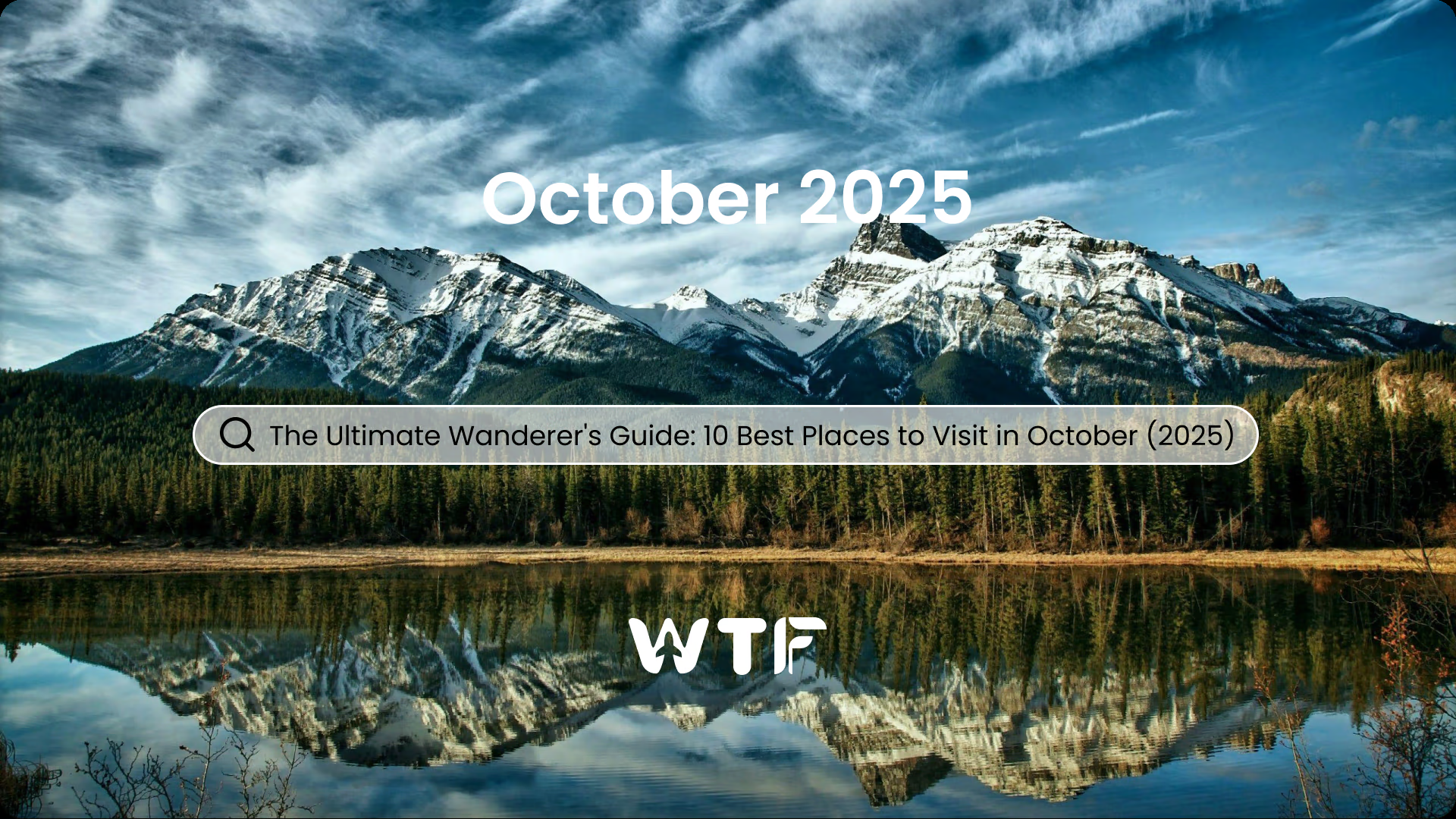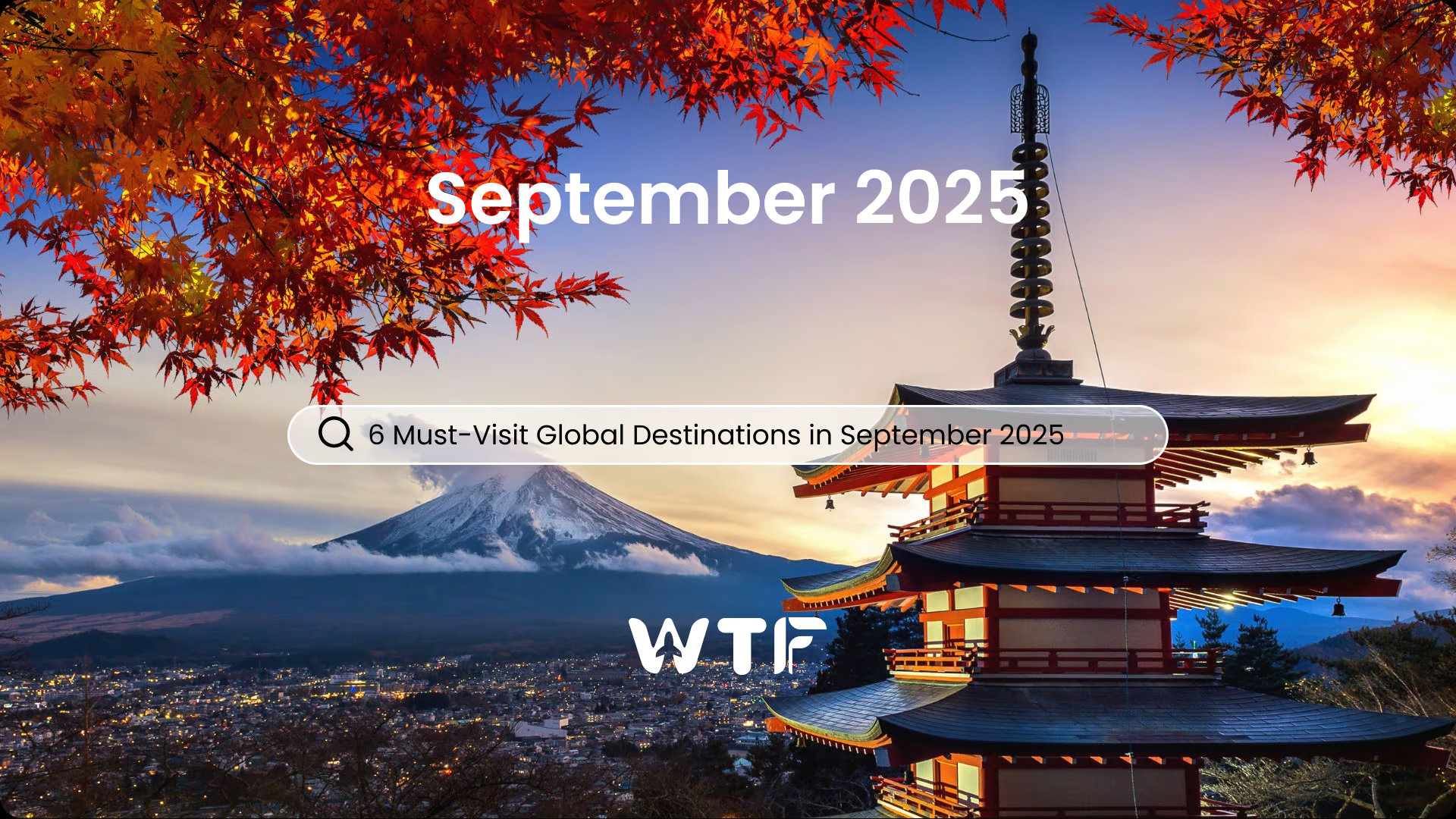Nestled in North Africa, Algeria is a land of diverse landscapes, rich history, and a vibrant fusion of cultures. From the golden sands of the Sahara Desert to the bustling streets of its coastal cities, Algeria offers an enchanting journey that blends centuries of tradition with a rapidly evolving present.
As the largest country in Africa and the 10th largest in the world, Algeria boasts a breathtaking natural beauty that ranges from towering mountains to pristine Mediterranean beaches. Its history is a tapestry woven with the threads of Berber, Arab, and French influences, resulting in a unique blend of languages, customs, and cuisine.
Why you should visit Algeria?
1. Natural Wonders:
Algeria’s landscapes are as diverse as they are breathtaking. The Sahara Desert, one of the world’s most iconic natural wonders, stretches across the southern part of the country. Picture endless golden dunes, oasis towns, and starry desert nights that will leave you awe-inspired. To truly appreciate the Sahara, consider taking a camel trek or a 4×4 adventure.
But the Sahara isn’t Algeria’s only jewel. The country is home to the majestic Hoggar Mountains, where rugged peaks and ancient rock art sites await intrepid hikers and history enthusiasts. You can also explore the lush Kabylie region in the north, with its green hills, coastal cliffs, and picturesque villages.
2. Historical and Cultural Heritage:
Algeria’s history is a blend of ancient civilizations and colonial influences. Start your historical journey in Algiers, the capital, where the Casbah – a UNESCO World Heritage site – stands as a testament to the city’s rich past. Wandering through its winding streets, you’ll discover historic mosques, Ottoman palaces, and hidden gems around every corner.
Timgad, an ancient Roman city, showcases the country’s Roman heritage with well-preserved ruins that transport you back in time. Explore the ruins of Djemila and Tipasa, and you’ll find more glimpses into Algeria’s Roman past.
For a deep dive into indigenous Berber culture, head to the Kabylie region. The Berbers’ vibrant traditions, crafts, and unique way of life are on full display in this picturesque part of the country.
3. Diverse Cuisine:
Algerian cuisine is a delightful fusion of North African, Mediterranean, and Middle Eastern flavors. Savor traditional dishes like couscous, tagines, and merguez sausages, accompanied by a variety of aromatic spices. Algerian mint tea is a must-try, as is the rich, sweet pastry known as baklava.
4. Warm Hospitality:
Algerians are renowned for their warmth and hospitality. Locals are eager to share their culture and traditions with visitors, ensuring a warm and memorable stay.
5. Safety and Security:
Algeria has made significant strides in enhancing security, making it a safe destination for tourists. Travelers are welcomed with open arms, and the country is well-equipped with essential amenities and services.
6. Off the Beaten Path:
One of the perks of exploring Algeria is its off-the-beaten-path charm. You won’t find hordes of tourists here, which means you can have historical sites and natural wonders almost all to yourself.
Best Attractions:
1. Algiers – The Enchanting Capital:
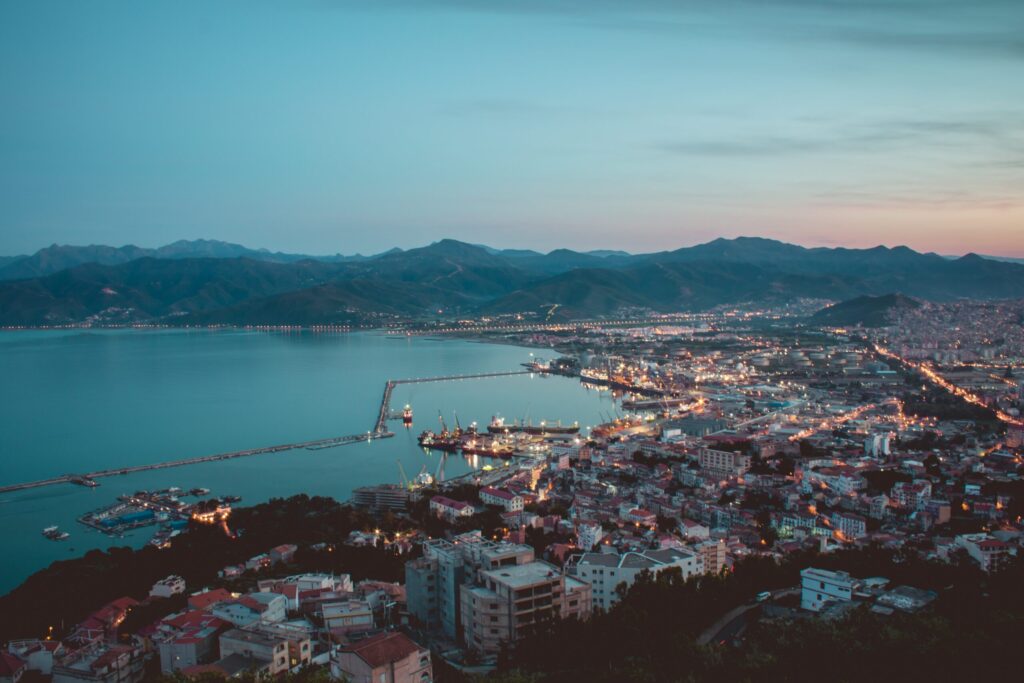
- History: Algiers has a rich history, dating back to Berber, Roman, Byzantine, Arab, and Ottoman rule. It was a strategic city during the Barbary Wars and played a pivotal role in the Algerian War of Independence.
- Specialty: The Casbah, a UNESCO World Heritage site, is the city’s historic heart. Its labyrinthine streets, ancient mosques, and Ottoman palaces are a delight to explore.
- Local Transport: In Algiers, you can rely on a combination of taxis, buses, and the Algiers Metro to get around the city. Taxis are readily available and relatively affordable.
2. Timgad – The Roman Gem:
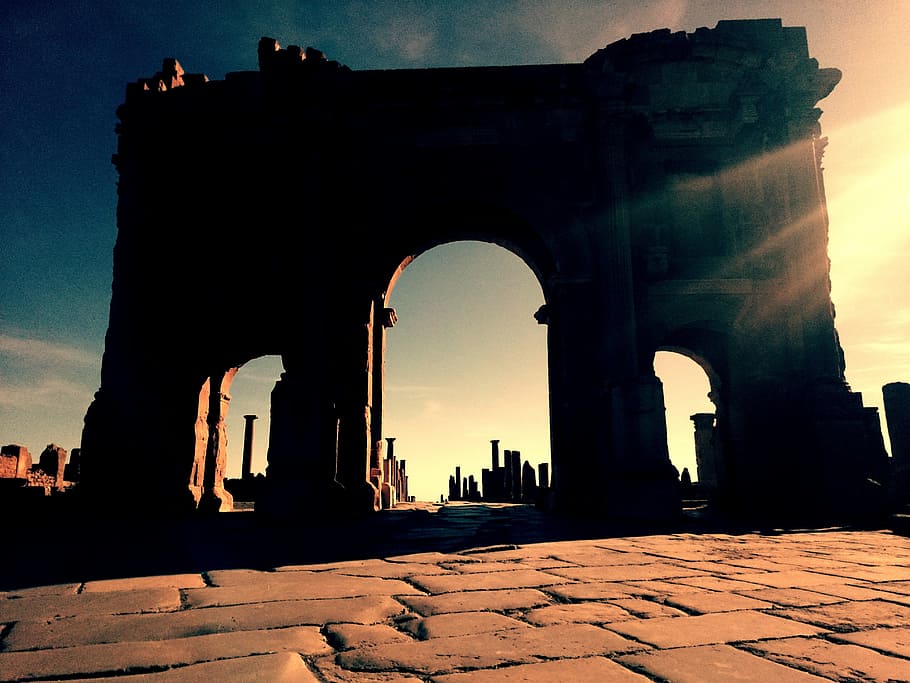
- History: Timgad was founded around 100 AD by Emperor Trajan as a Roman city. It was a bustling crossroads in the Roman Empire.
- Specialty: Timgad boasts exceptionally well-preserved Roman ruins, including a well-preserved theater, basilicas, and arches.
- Local Transport: To reach Timgad, take a shared taxi from Batna, which is well-connected to the rest of the country. Once in Timgad, you can explore the ruins on foot.
3. Sahara Desert – The Golden Sands:
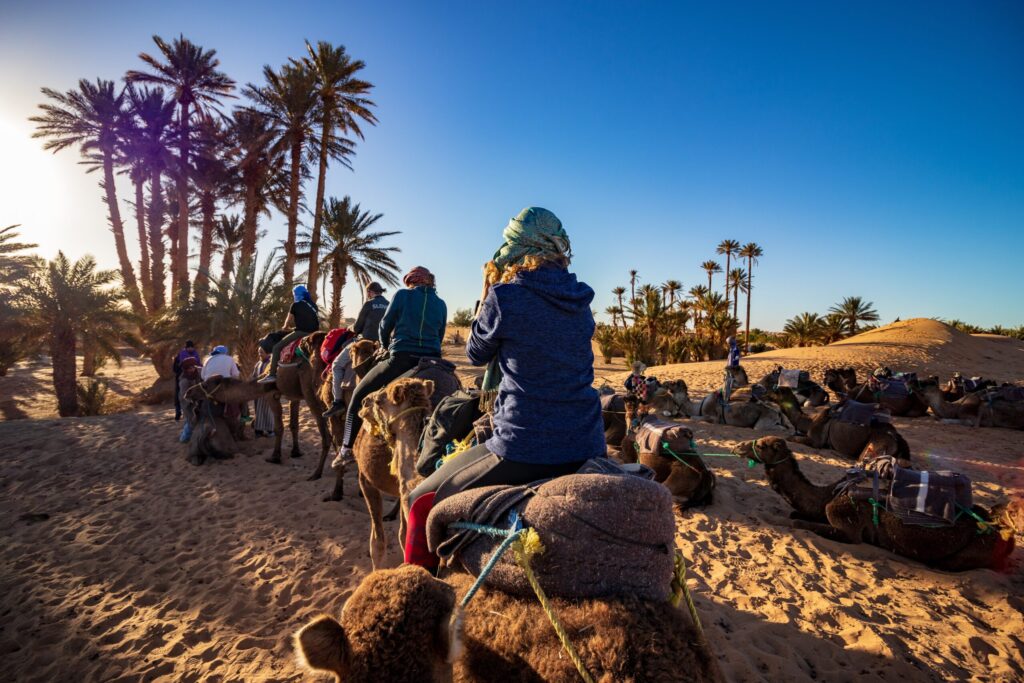
- History: The Sahara Desert has been home to Tuareg and Berber communities for centuries, known for their resilience and adaptability in this harsh environment.
- Specialty: The Sahara offers breathtaking landscapes, with vast sand dunes, oases, and a unique cultural experience. Enjoy camel trekking and stargazing.
- Local Transport: Fly to Tamanrasset, the gateway to the Sahara. Arrange guided tours locally for desert excursions, which typically include transportation.
4. Constantine – The City of Bridges:
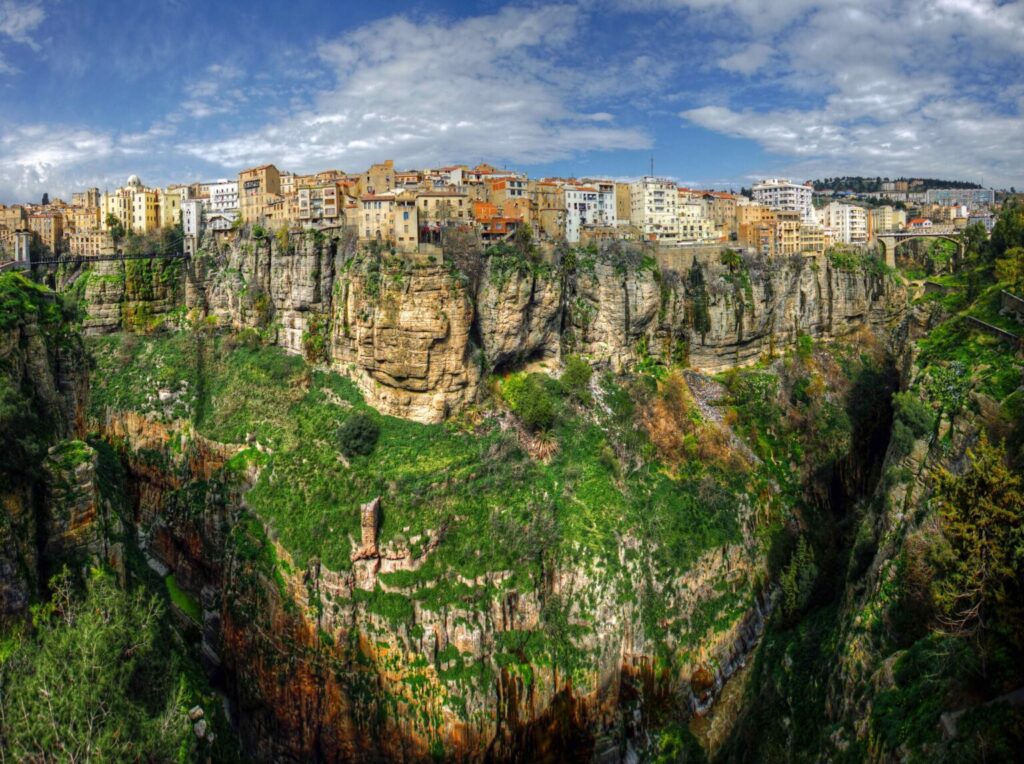
- History: Constantine’s history goes back to the Numidian period and includes Roman, Byzantine, and Ottoman influences.
- Specialty: Known as the “City of Bridges,” Constantine is famous for its deep gorges, historic bridges, and a captivating casbah.
- Local Transport: Travel by train or bus to Constantine from Algiers. The city has a reliable local bus network and taxis for exploring its attractions.
5. Djemila – The Roman Treasure:
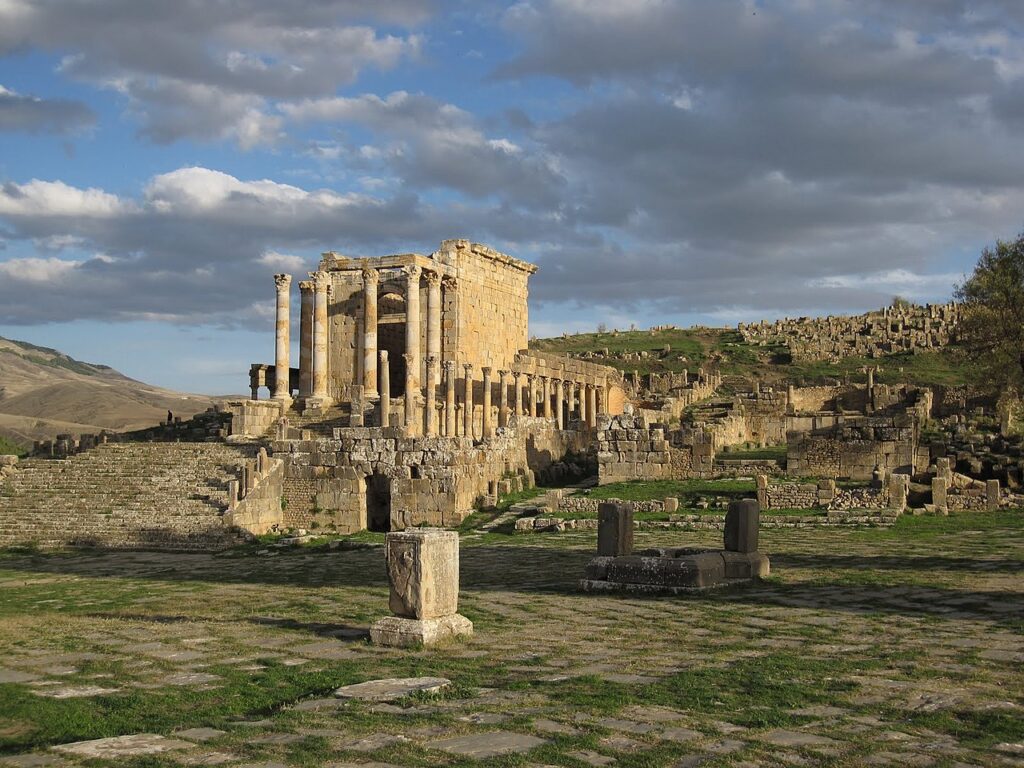
- History: Djemila, or Cuicul, was a Roman town founded in the 1st century AD, serving as an essential Roman military garrison.
- Specialty: Djemila is known for its remarkably well-preserved Roman ruins, including a forum, basilica, temples, and theaters.
- Local Transport: From Algiers, take a bus or shared taxi to Setif, the nearest major city. Djemila is a short drive from Setif, and you can use local transportation or hire a taxi for the journey.
Unexplored places to explore:
1. Tassili n’Ajjer National Park:
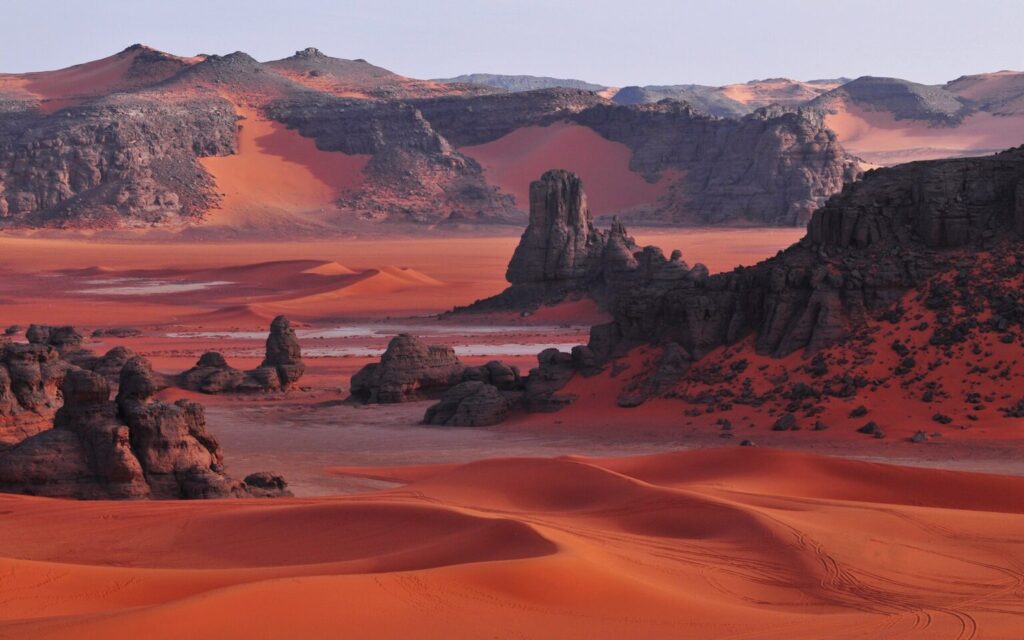
- Specialty: Tassili n’Ajjer is renowned for its striking sandstone rock formations, ancient rock art, and stunning landscapes. It’s a paradise for hikers, nature enthusiasts, and those interested in prehistoric art.
- Local Transport: The park is located in the southeast of Algeria. To reach Tassili n’Ajjer, you can fly to Djanet, a nearby town, and arrange tours or local transportation to the park. Guided tours are a common way to explore the area.
2. Gouraya National Park:
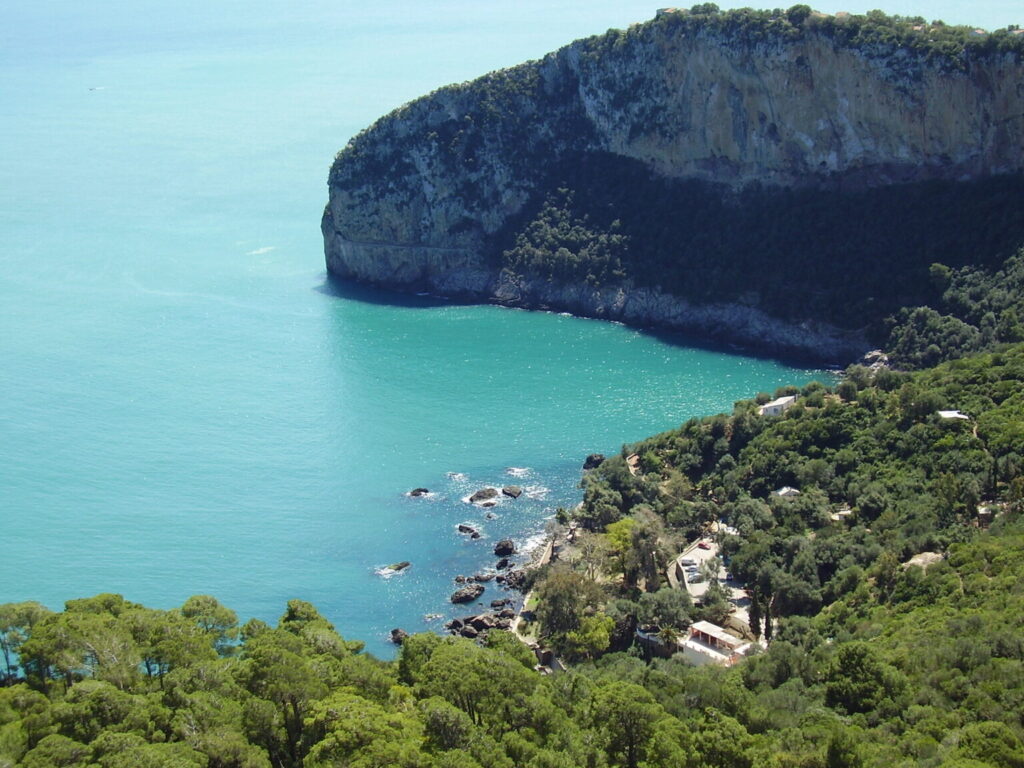
- Specialty: Gouraya National Park offers a unique blend of Mediterranean landscapes, rocky cliffs, and diverse flora and fauna. It’s perfect for hiking and birdwatching.
- Local Transport: Bejaia is the nearest city. From Bejaia, you can take a taxi or local transportation to the park entrance. The park is easily accessible by road.
3. El-Oued:

- Specialty: El-Oued is known for its palm groves, canals, and traditional Saharan architecture. It’s an opportunity to experience authentic Algerian culture.
- Local Transport: El-Oued can be reached by train from Algiers or by bus. Once in El-Oued, you can explore the town on foot or hire a local taxi.
4. Ahaggar Mountains (Hoggar Mountains):
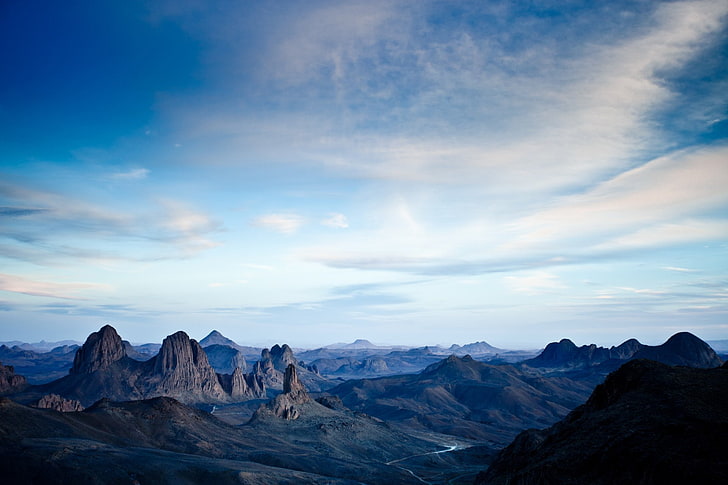
- Specialty: The Ahaggar Mountains are known for their dramatic desert landscapes, hidden villages, ancient rock art, and excellent hiking and 4×4 adventure opportunities.
- Local Transport: Tamanrasset is the gateway to the Ahaggar Mountains. You can fly into Tamanrasset and arrange local transportation or guided tours to explore the region.
5. Beni Hammad Fort:

- Specialty: Beni Hammad Fort is an ancient historical site dating back to the 11th century. It offers a fascinating glimpse into the region’s history and architecture.
- Local Transport: The fort is near M’Sila. You can reach M’Sila by train or bus from Algiers. Once in M’Sila, you can hire a taxi or use local transportation to reach the fort.
Currency and some tips:
The currency in Algeria is the Algerian Dinar (DZD). When traveling in Algeria, it’s essential to have an understanding of the local currency and some money-saving tips to make your trip more budget-friendly. Here are some currency-related tips and tricks for traveling in Algeria:
Currency (DZD):
- It’s advisable to exchange some currency before arriving in Algeria. Major international airports, banks, and exchange offices are available for currency exchange.
- While credit cards are accepted at some upscale hotels and restaurants in major cities, cash is the preferred mode of payment in most places. It’s a good idea to carry sufficient cash with you.
- Be aware that it might be challenging to find ATMs in smaller towns or rural areas, so plan your cash withdrawals accordingly when you are in larger cities.
- Currency exchange rates can vary, so it’s a good practice to compare rates at multiple exchange offices or banks to get the best deal.
1. Budget Accommodations and Locations:
- Budget Accommodations: Look for budget-friendly accommodations like guesthouses, hostels, and small family-run hotels. Some cities with budget options include Algiers (El Harrach and Kouba neighborhoods), Oran (Hai Essania area), and Tlemcen.
- Shared Housing: Consider using platforms like Airbnb to find affordable rental apartments, particularly if you are traveling with a group.
2. Local Cuisine and Must-Try Foods:
- Couscous: A staple in Algerian cuisine, couscous is often served with vegetables, meat, and a flavorful sauce. It’s a must-try dish.
- Tagine: A slow-cooked stew, tagine can include a variety of ingredients like lamb, chicken, and vegetables, all seasoned with aromatic spices.
- Merguez: These spicy sausages are a popular street food and can be found at markets and food stalls.
- Brik: A deep-fried pastry filled with a mixture of egg, tuna, and capers. It’s a delicious and affordable snack.
- Makroudh: A sweet pastry made with dates and honey, perfect for those with a sweet tooth.
3. Public Transport and Pricing:
- Public Buses: Public buses are a cost-effective way to get around within cities. Prices are generally affordable, with fares starting at around 20 DZD.
- Shared Taxis: Shared taxis are a common mode of transportation between cities and towns. Fares are usually reasonable, but it’s a good practice to negotiate the fare before starting your journey.
4. Local SIM Providers and Plans:
- Some of the local mobile network providers in Algeria include Djezzy, Ooredoo, and Mobilis.
- For tourists, it’s recommended to get a prepaid SIM card with data. Ooredoo and Djezzy offer good tourist plans with data and local call minutes.
5. Basic Words in the Local Language:
While many Algerians speak French, particularly in urban areas, knowing a few basic Arabic phrases can be helpful and appreciated:
- Hello: “Salam” (سلام)
- Thank you: “Shukran” (شكرا)
- Yes: “Naam” (نعم)
- No: “La” (لا)
- Please: “Min fadlik” (من فضلك)
- Goodbye: “Ma’a Salama” (مع السلامة)
- How much does this cost? “Bikam hadha?” (بكم هذا؟)
Culture and Influence:
1. Ancient Civilization:
- Algeria has a rich history of ancient civilizations, with evidence of human habitation dating back thousands of years. Notable ancient civilizations in the region include the Berbers and the Phoenicians.
- The Berbers, the indigenous people of North Africa, have inhabited the area for millennia and have their own unique languages and cultural traditions.
- The Phoenicians established settlements in what is now modern Algeria, contributing to the region’s cultural and commercial development.
2. Religious Significance:
- Algeria holds significant religious importance as a predominantly Muslim country.
- Islam plays a central role in the lives of Algerians, with a majority adhering to Sunni Islam. Sufi traditions are also prevalent, emphasizing spiritual practices and mysticism.
- Algeria has been home to renowned Islamic scholars, mystics, and saints, and religious sites and festivals are an integral part of the country’s cultural heritage.
3. History and Heritage:
- Algeria’s history is marked by a series of foreign invasions and occupations. It was under Roman, Byzantine, Arab, and Ottoman rule before coming under French colonial domination in the 19th century.
- The Algerian War of Independence (1954-1962) was a pivotal moment in the country’s history, leading to its independence from France.
- Algeria’s diverse cultural heritage reflects the influences of its indigenous Berber roots, Islamic traditions, and French colonial history.
4. Modern Significance:
- Modern Algeria is a dynamic nation with a growing economy and significant geopolitical influence in North Africa.
- The country is known for its vast energy resources, particularly in oil and natural gas, making it an important player in the global energy market.
- Algeria’s role in regional politics and diplomacy, particularly in relation to the Western Sahara conflict and its involvement in African and Arab organizations, contributes to its modern significance.
Wanderer’s Word!
Algeria is a country of contrasts and captivating experiences. With a rich history, diverse landscapes, and unique cultural heritage, it offers a journey that blends ancient wonders with natural beauty. While challenges like safety considerations and language barriers may exist, the rewards of exploring this North African gem can be deeply satisfying. With proper planning and a spirit of adventure, Algeria can be an extraordinary travel destination for those seeking authenticity and cultural exploration.
"السفر علم"- Travel is knowledge.



